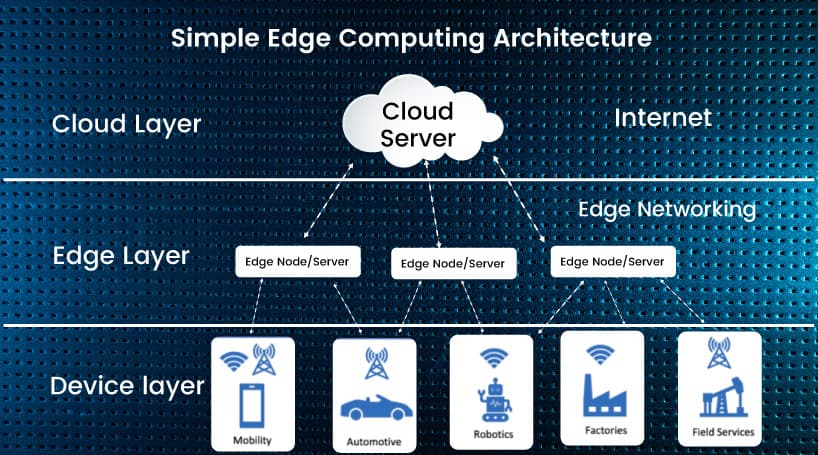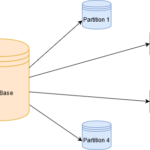In the realm of Big Data processing, the integration of Edge AI technology has emerged as a game-changer by enabling decentralized computing at the edge of networks. This innovative approach utilizes artificial intelligence algorithms to process and analyze data directly on devices or at the edge of the network, reducing latency and bandwidth requirements. In this article, we will explore the pivotal role of Edge AI in revolutionizing decentralized Big Data processing, enhancing efficiency, scalability, and real-time decision-making capabilities in data-intensive applications.
Understanding Edge AI
Edge AI refers to the integration of artificial intelligence algorithms with edge computing devices, enabling data to be processed at or near the source of its generation. This eliminates the latency involved in sending data to centralized data centers for processing, providing immediate insights and allowing quicker decision-making. With the explosion of Big Data from IoT devices, social media, and other sources, the need for efficient processing methods has become paramount.
The Importance of Decentralized Big Data Processing
Decentralized Big Data Processing involves distributing data processing across various nodes rather than relying on a central server. This approach mitigates risks related to single points of failure, enhances data sovereignty, reduces latency, and optimally supports real-time data analytics. A decentralized structure is particularly beneficial for businesses that rely on vast amounts of data generated in real-time, such as those in manufacturing, healthcare, and smart cities.
Enhancing Performance with Edge AI
By harnessing Edge AI, businesses can significantly enhance the performance of their Big Data Processing. Here are some key benefits:
- Reduced Latency: Processing data at the edge minimizes the time it takes to analyze and act on information, which is vital for applications that require immediate responses.
- Bandwidth Efficiency: With Edge AI, only relevant data is transmitted to the cloud, reducing bandwidth costs and alleviating network congestion.
- Enhanced Privacy: Sensitive data can be processed locally, ensuring compliance with regulations such as GDPR and enhancing user trust.
- Increased Reliability: Edge AI systems can continue functioning even with intermittent connectivity, maintaining operations without disruption.
Use Cases of Edge AI in Decentralized Big Data Processing
Various industries are leveraging Edge AI for decentralized Big Data processing. Below are some notable use cases:
1. Smart Manufacturing
In smart factories, Edge AI devices can monitor equipment conditions and predict maintenance needs using real-time data from machines. This data-driven predictive maintenance minimizes downtime and reduces operational costs.
2. Healthcare
Wearable devices equipped with Edge AI can analyze health data on-site and provide immediate feedback. For instance, heart rate and glucose levels can be monitored continuously, enabling timely medical intervention without needing data to be processed in a centralized location.
3. Autonomous Vehicles
Self-driving cars must process vast amounts of sensory data in real-time to navigate safely. Edge AI enables these vehicles to analyze their environment, recognize obstacles, and make split-second decisions without relying on the cloud, essential for safety and efficiency.
4. Smart Cities
Urban environments increasingly deploy Edge AI for traffic management, waste collection, and energy distribution. By processing data from sensors distributed throughout the city, local authorities can optimize resource use and improve the quality of life for citizens.
Challenges in Implementing Edge AI for Big Data
While the benefits of integrating Edge AI in decentralized Big Data processing are substantial, several challenges must be addressed:
- Interoperability: The compatibility of various devices and standards can present obstacles in creating cohesive Edge AI solutions.
- Security: Edge devices can be vulnerable to cyber threats. Robust security protocols must be implemented to protect sensitive data.
- Scalability: As the number of connected devices increases, so does the challenge of managing and scaling Edge AI solutions effectively.
- Data Management: Managing data effectively across decentralized systems while ensuring data integrity and coherence is a complex task.
Architectural Considerations for Edge AI in Big Data
Developing an architecture that incorporates Edge AI for decentralized Big Data processing requires careful planning. Here are some critical architectural components:
- Edge Devices: These devices, which can include IoT sensors and gateways, play a vital role in data generation and preliminary analysis.
- Data Ingestion Layer: This layer handles data collection from various sources, ensuring high data fidelity and real-time processing capabilities.
- Processing Layer: Here, applications utilize AI algorithms to gather insights from both real-time and historical data without overwhelming a central server.
- Management and Orchestration: This component is crucial for deploying AI models across distributed environments, ensuring that resources are allocated appropriately.
The Future of Edge AI in Big Data
The convergence of Edge AI with decentralized Big Data processing is set to evolve rapidly in the coming years. As devices become smarter and more interconnected, the demand for local data processing capabilities will increase. Here are some trends to watch:
- Increased Adoption of 5G: The roll-out of 5G networks will facilitate more robust and reliable connections for edge devices, allowing for richer data processing capabilities.
- Advancements in AI Algorithms: More sophisticated AI models will be developed to run efficiently on edge devices, enhancing their data processing abilities.
- Focus on Sustainability: Solutions that prioritize energy efficiency and sustainability will be more prevalent, particularly as awareness of climate issues grows.
- Greater Regulation and Standards: The establishment of clear regulatory guidelines is expected to enhance the security and interoperability of Edge AI solutions.
The Impact of Edge AI on Business Operations
The integration of Edge AI into decentralized Big Data processing is fundamentally transforming business operations. Companies can enhance their operational efficiency, reduce costs, and provide enhanced customer experience. With Edge AI, businesses can tailor their services based on real-time insights, which can translate to competitive advantages in fast-paced markets.
Conclusion
Implementing Edge AI in decentralized Big Data processing is not just a trend but a necessary evolution in how data is handled in various industries. By embracing these technologies, organizations can realize improved systems, drive innovation, and foster environments conducive to rapid growth and adaptation.
The integration of Edge AI in decentralized Big Data processing plays a crucial role in enhancing data analytics capabilities, reducing latency, and optimizing resource utilization. This innovative approach not only empowers organizations to harness the full potential of their data but also facilitates real-time decision-making and scalability in the rapidly evolving landscape of Big Data. As technology continues to advance, leveraging Edge AI in decentralized processing will undoubtedly redefine the way we handle and derive insights from massive volumes of data in the Big Data ecosystem.














